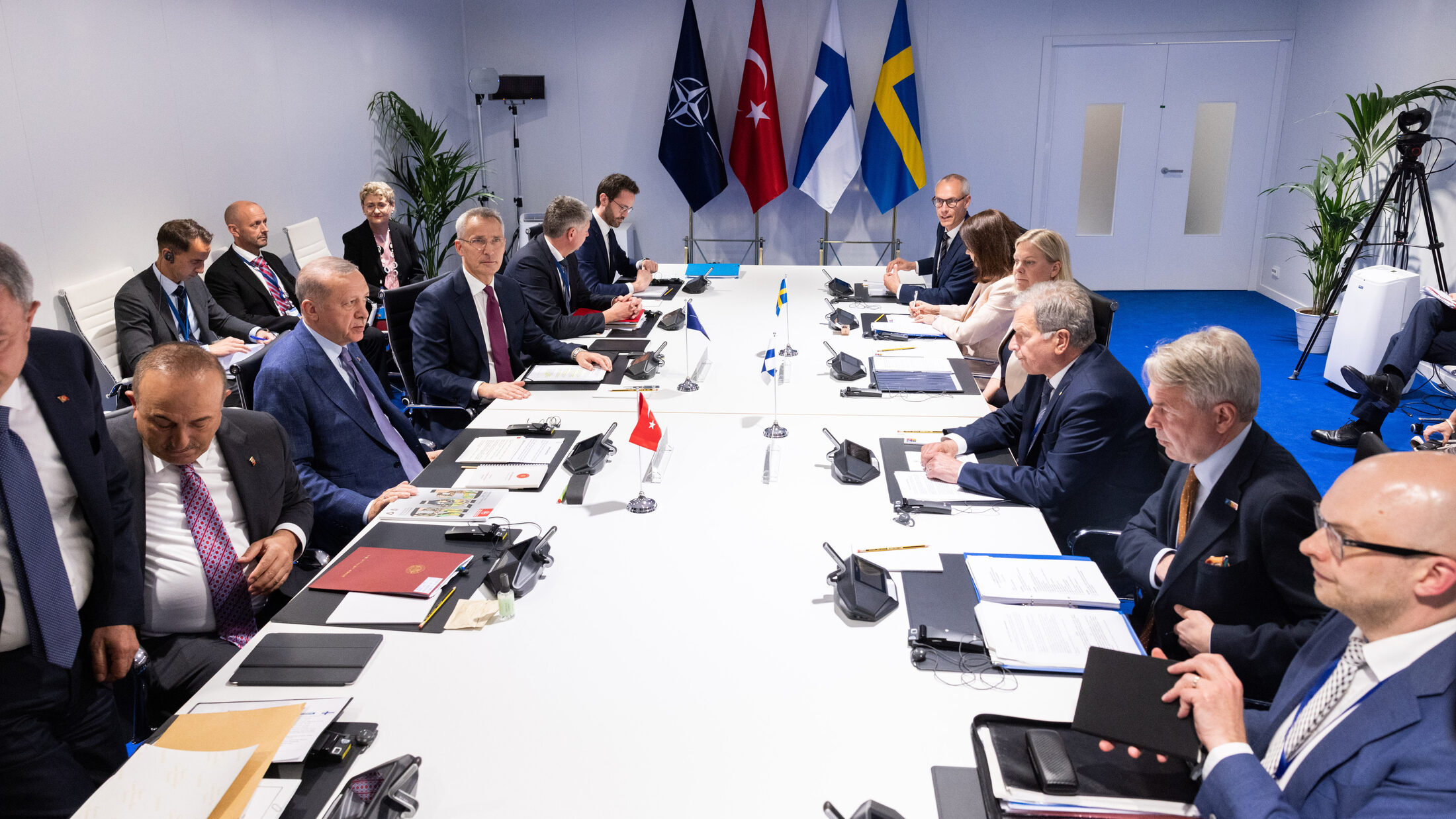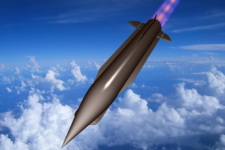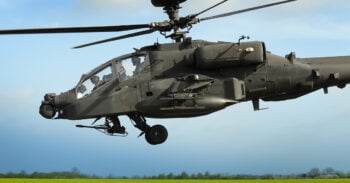
Meeting with NATO Secretary General Jens Stoltenberg, Recep Tayyip Erdoğan (President of Türkiye), Magdalena Andersson (Prime Minister of Sweden) and Sauli Niinistö (President of Finland). (NATO image)
ANKARA — There is a broad acceptance among NATO members that Turkish president Recep Tayyip Erdogan, running on a nationalist campaign, is holding up the Swedish bid for domestic purposes ahead of the election. That also means that when Turkey goes to the polls on May 14, they will be doing more than deciding the domestic future of the country — they likely will also be determining Sweden’s future with NATO.
Shortly after Russia’s invasion of Ukraine, Finland and Sweden dropped decades of military non-alignment and applied to join the US-led defense alliance. But Erdogan unexpectedly blocked the NATO bids, demanding steps against dozens of suspects that Ankara links to outlawed Kurdish militants and a failed 2016 coup attempt. Erdogan also asked the Nordic countries to drop their formal and informal arms embargo against Turkey.
The two countries have taken some steps to resolve the issue, especially after signing a memorandum of understanding with Turkey in June, and ended their arms embargo against Ankara, but remained stalled out through the end of 2022.
Then Erdogan, again suddenly, dropped his opposition to Finland’s membership, saying that the Finns had taken required steps. The NATO members moved quickly, allowing Finland to join the alliance on April 4 — with Sweden left out in the cold.
RELATED: UK denies it’s in talks with Turkey over submarine construction, despite Erdogan comments
Two people familiar with the Turkish government’s thinking told Breaking Defense that Erdogan decided to drop his opposition to Finland’s NATO bid in order to relieve some pressure from the West ahead of the election, so he could focus on domestic politics.
“Turkey wanted to show that it rewards progress and it doesn’t categorically and ideologically block Nordic countries,” one person with knowledge said. “Finland was a bit of collateral, the issues with Sweden are real.”
There is optimism in NATo circles that after the election, things may change. As NATO Secretary General Jens Stoltenberg said recently, “We fully anticipate that Sweden will be a member of NATO by the time of the Vilnius Summit in July.” But whether Erdogan stays in power, and by how much, may determine the next steps for Sweden’s bid.
There are three scenarios in play: Erdogen wins, Erdogen loses, or a split government, each with its own likely impact on the Sweden question. .
The simplest answer for Sweden would be for Erdogen to lose his grip on power. A median of 10 polls conducted in April indicate that Turkish opposition’s joint presidential candidate Kemal Kilicdaroglu has the lead in the first round of elections with three points margin. There is an increasing likelihood that Kilicdaroglu may emerge victorious, even if he has to go to a runoff and a second vote, to be held if needed on May 28.
Unal Cevikoz, the chief advisor to Kilicdaroglu, said in various public speeches since last year that Kilicdaroglu’s Republican People’s Party (CHP) principally supports Sweden’s membership to NATO. Cevikoz said in a parliamentary address in March that his party respects the steps Sweden has taken to address Turkish concerns.
“As a result of all these [steps], we hope that in the future there will be a development that will not damage the friendship between Turkey and Sweden” he said. “It will be a positive progress [if] Sweden will become a member of NATO.”
Cevikoz last week told media that if Kilicdaroglu emerges victorious, Sweden’s bid might be approved before the NATO summit in Vilnius on July 11-12. However he cautioned that a new government and parliament would not be in place before mid-June, roughly a month before the summit, and there might not be enough time to ratify the application.
Sinan Ulgen, a former Turkish diplomat and a senior fellow at Carnegie Europe in Brussels, noted that if Kilicdaroglu emerges victorious in the runoff on May 28, there wouldn’t be much time to complete the ratification process. But he thinks the government could still open a path for Sweden.
“The government may go to Vilnius with an official pledge which says it would approve Sweden’s application as soon as possible,” Ulgen told Breaking Defense. “And this could be politically enough.”
Ulgen warns that the new government would still need to see some sort of progress by Swedish authorities on counterrorism, possibly executive steps like investigations against terror-linked Institutes and funding.
“However the government would be inclined to approve it because they would like to make a fresh beginning with NATO and the west,” he added. “Sweden should help the new government in that regard.”
A more complicated scenario is a split parliament, where Kilicdaroglu is president but Erdogan retains the majority. “In that case, the new government would need to convince the Erdogan-led political alliance to complete the process” Ulgen added — and how that would shake out is anyone’s guess.
But what happens if Erdogan retains the presidency? All hope would not be lost for Sotckholm, as Ulgen doesn’t believe Erdogan would block Sweden’s membership forever, particualrly given how annoyed it has made other NATO allies and the risk of economic impact as a result, particuarlly from the US.
“Sweden played an active role in the earthquake donors conference as the president of the Council of EU, and delivered a substantial aid package to Turkey,” he said. “Also, if you consider the state of the Turkish economy, and depleting Turkish Central Bank reserves, there is a need to establish a more sensible policy with regard to the West.”
A second person with knowledge of the Turkish government’s thinking told Breaking Defense that, if Erdogen retains power, he would want to see movements from Sweden on counter-terorirsm efforts before releasing his hold.
“The Swedes themselves told the Turkish officials that they cannot do much until June 1, when the amendments enter into force,” the person said. “But they can take concrete administrative steps to satisfy Turkish concerns before the Vilnius summit and there is still a chance for them to become a member of NATO by then.”
The person reiterated that Turkey principally supports Sweden’s membership and “actions rather than words” on terrorism would resolve the issue. In other words: Erdogen may be willing to deal if he gets to tell the domestic electroate that we forced Sweden to deliver what he wanted.
After all, Erdogan in the past said that he wouldn’t approve Finland’s NATO membership as long as he is alive, yet he did it in a surprising U-turn after the Finns met their promise. With the elections behind him, Erdogen may well decide he has more to gain by repairing relations with the West than he does by exacerbating the tensions.
TAI exec claims 20 Turkish KAAN fighters to be delivered in 2028
Temel Kotil, TAI’s general manager, claimed that the domestically-produced Turkish jet will outperform the F-35 Joint Strike Fighter.


























